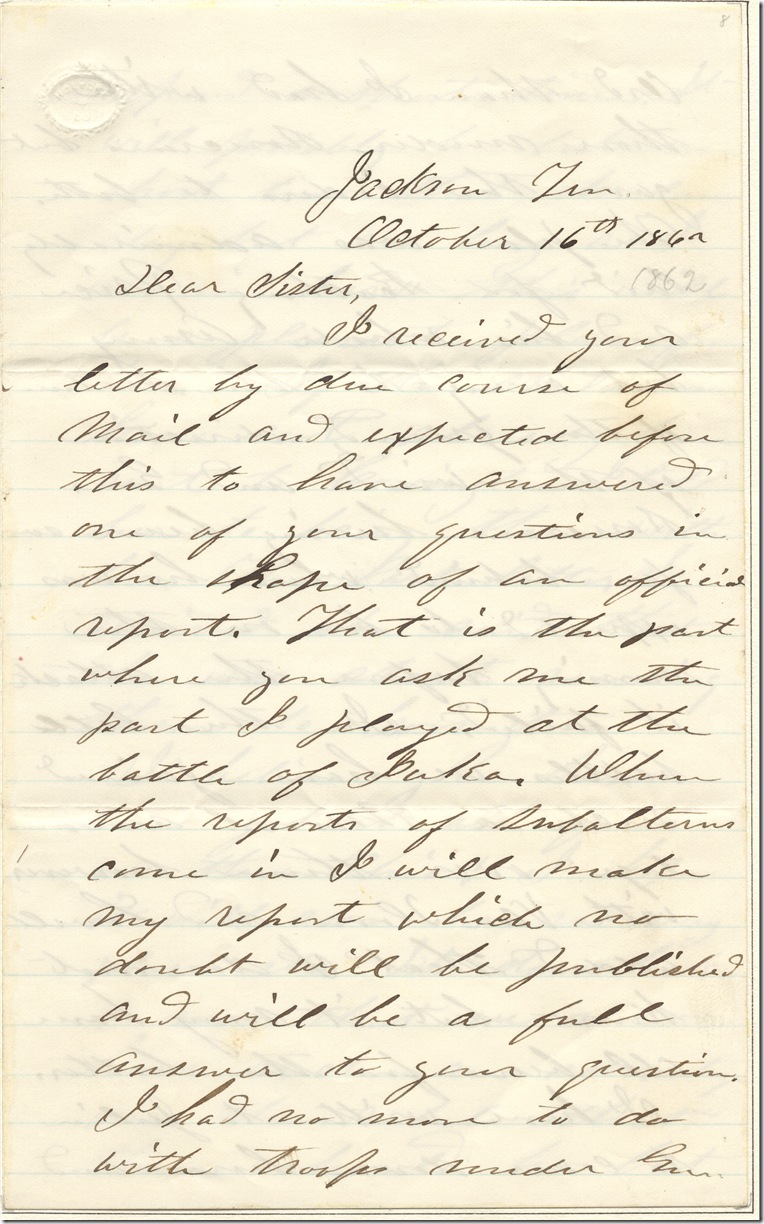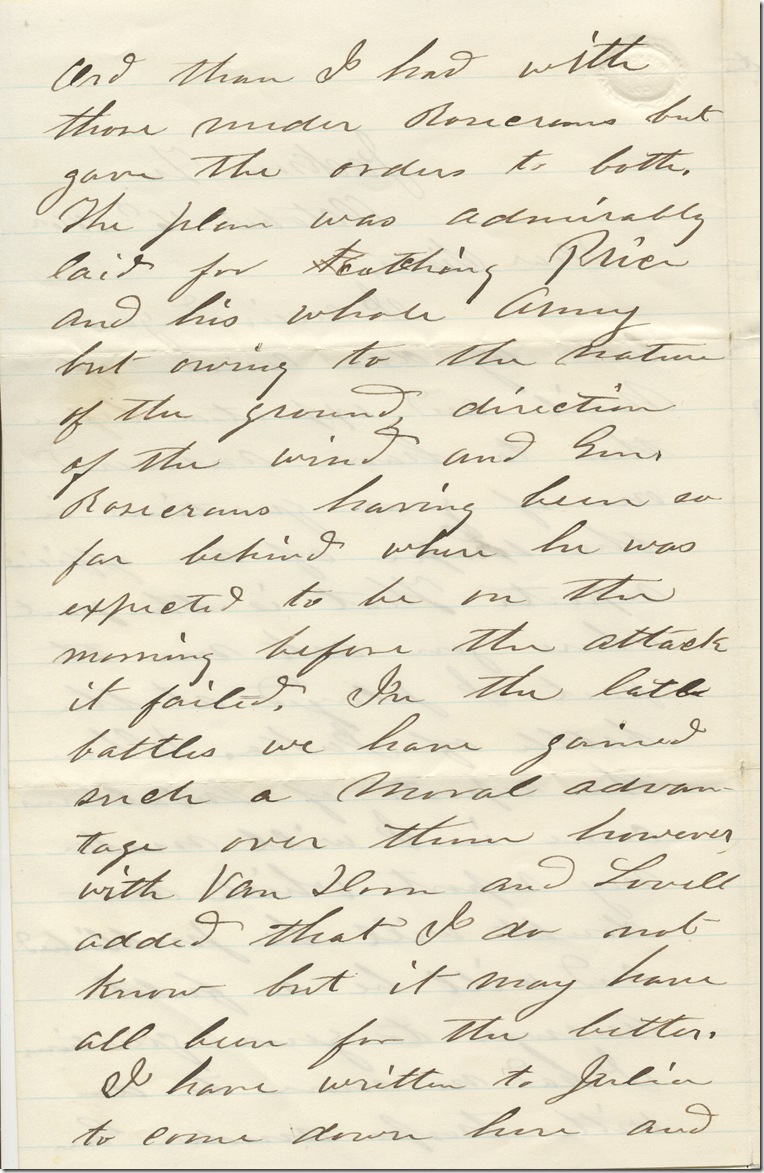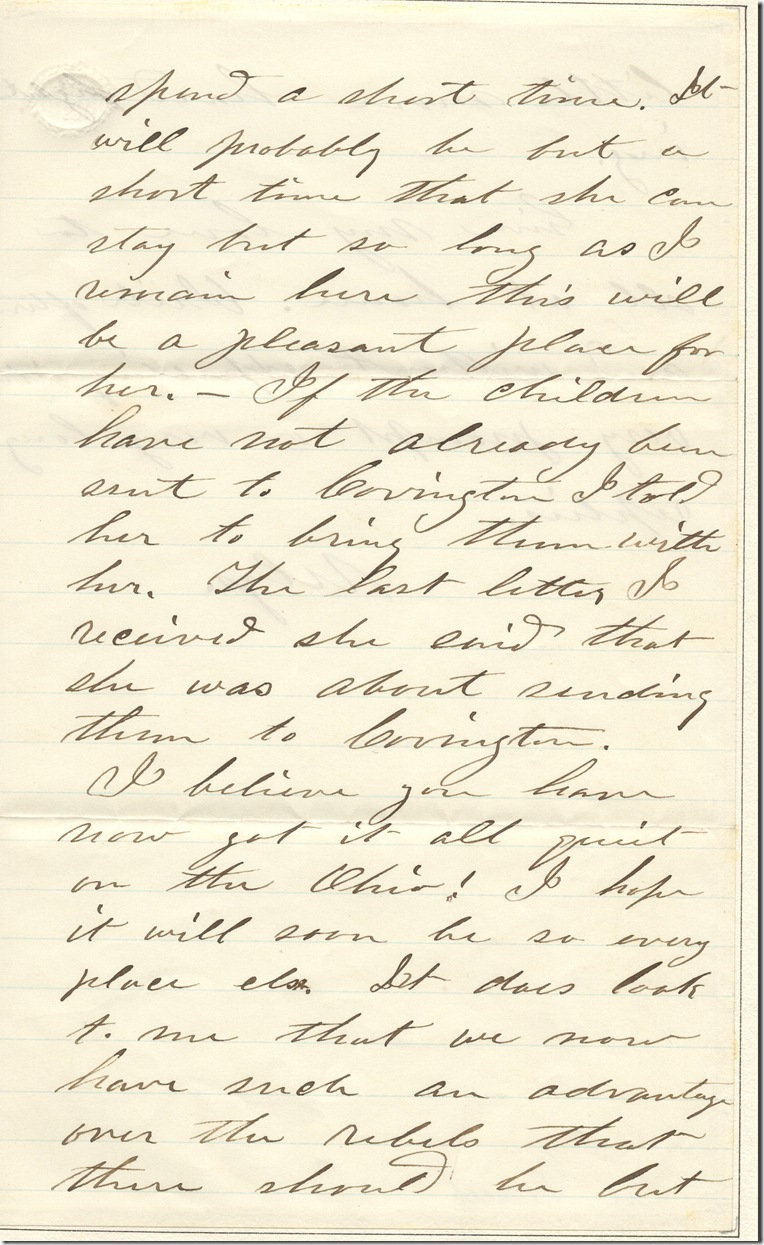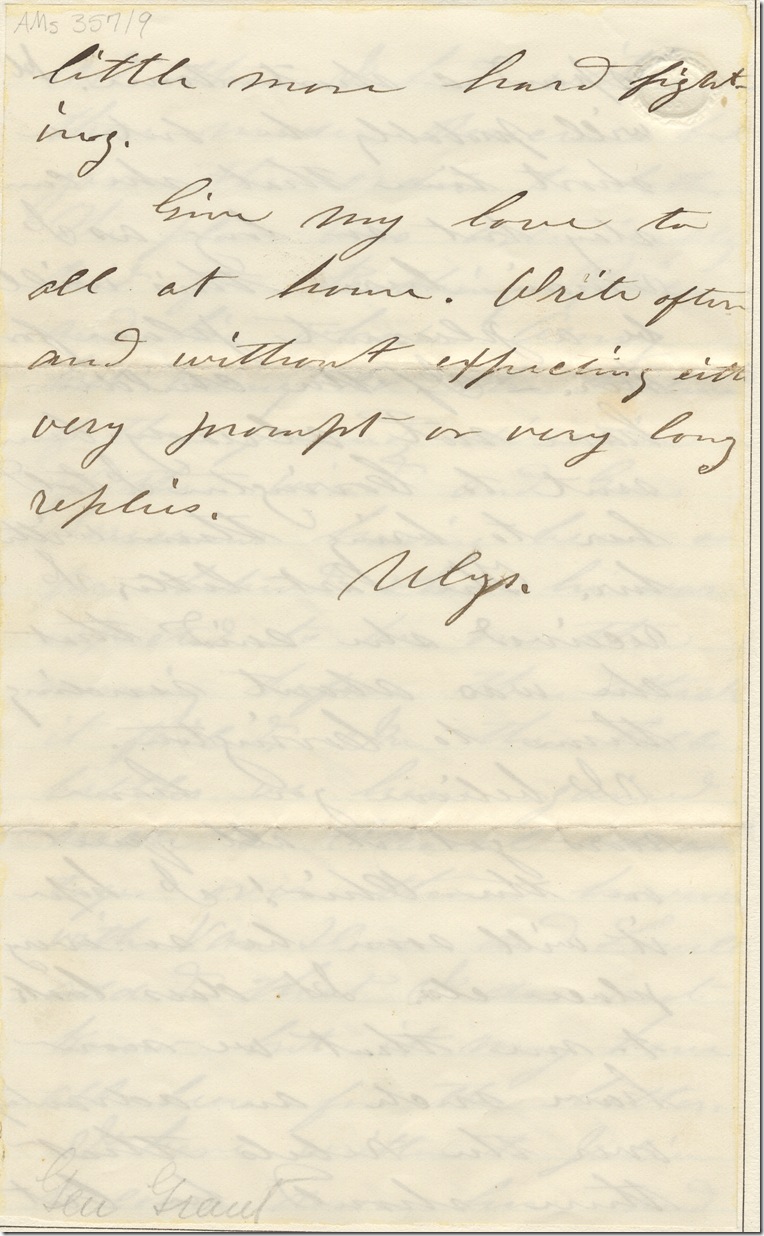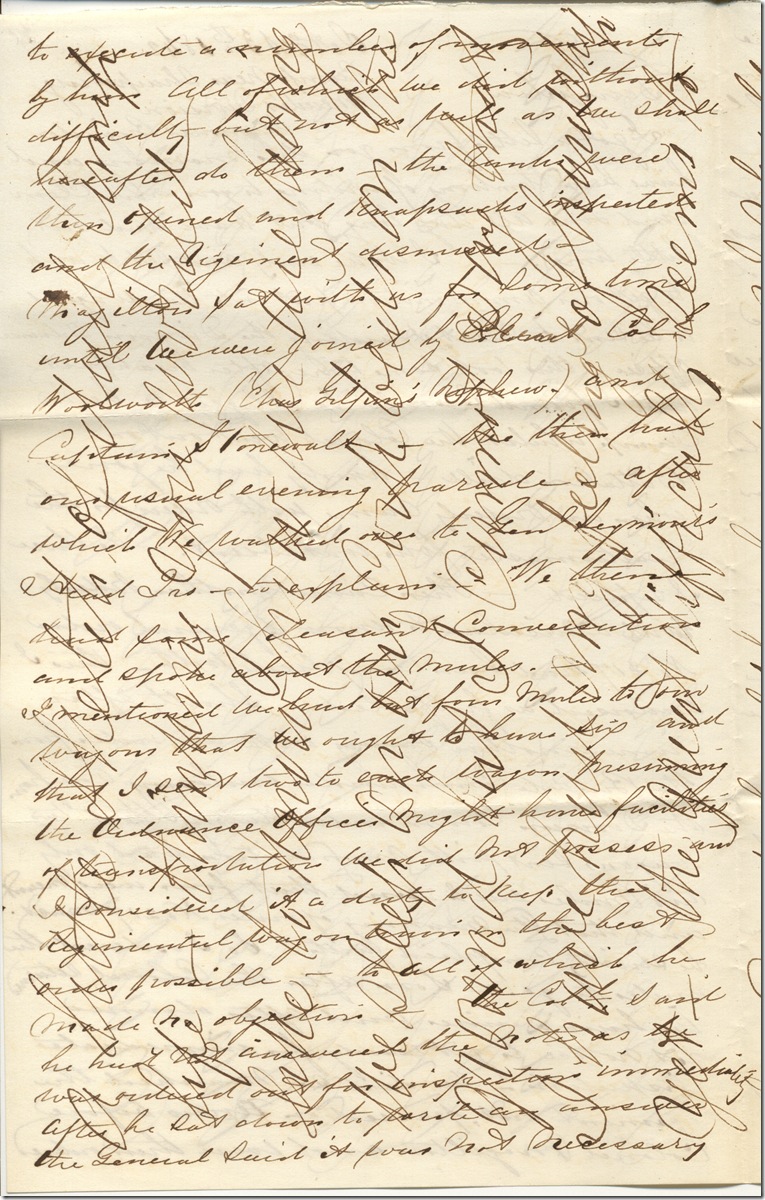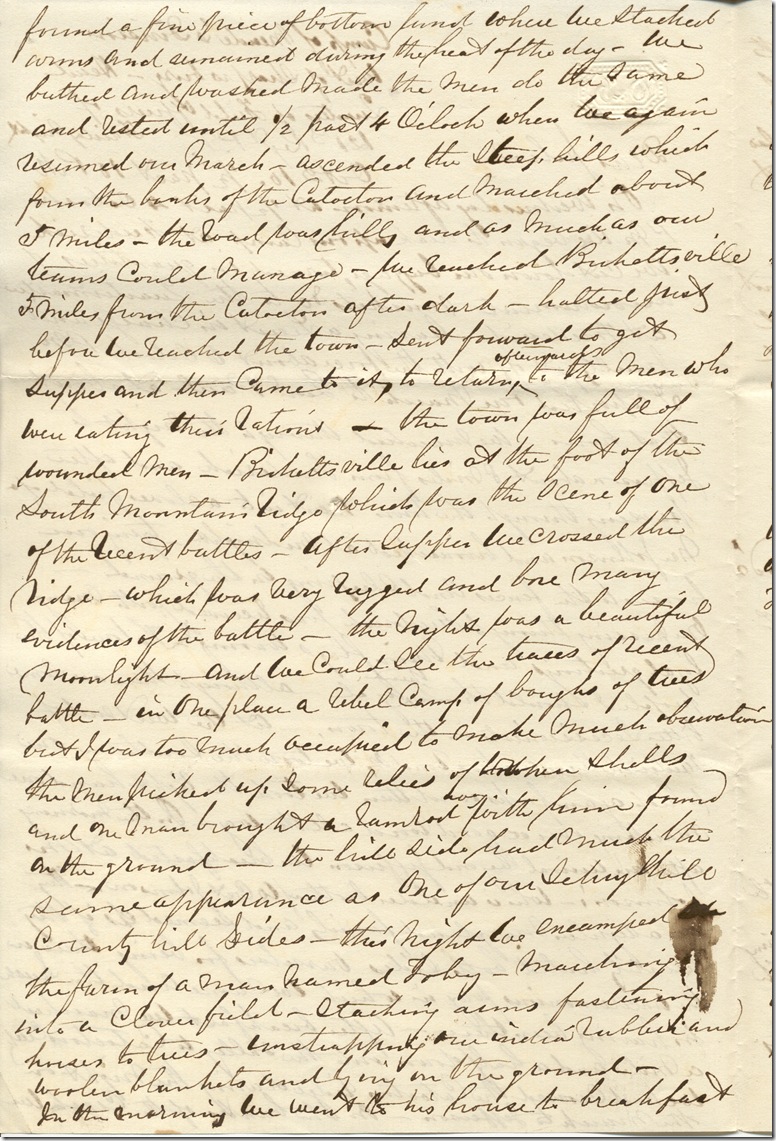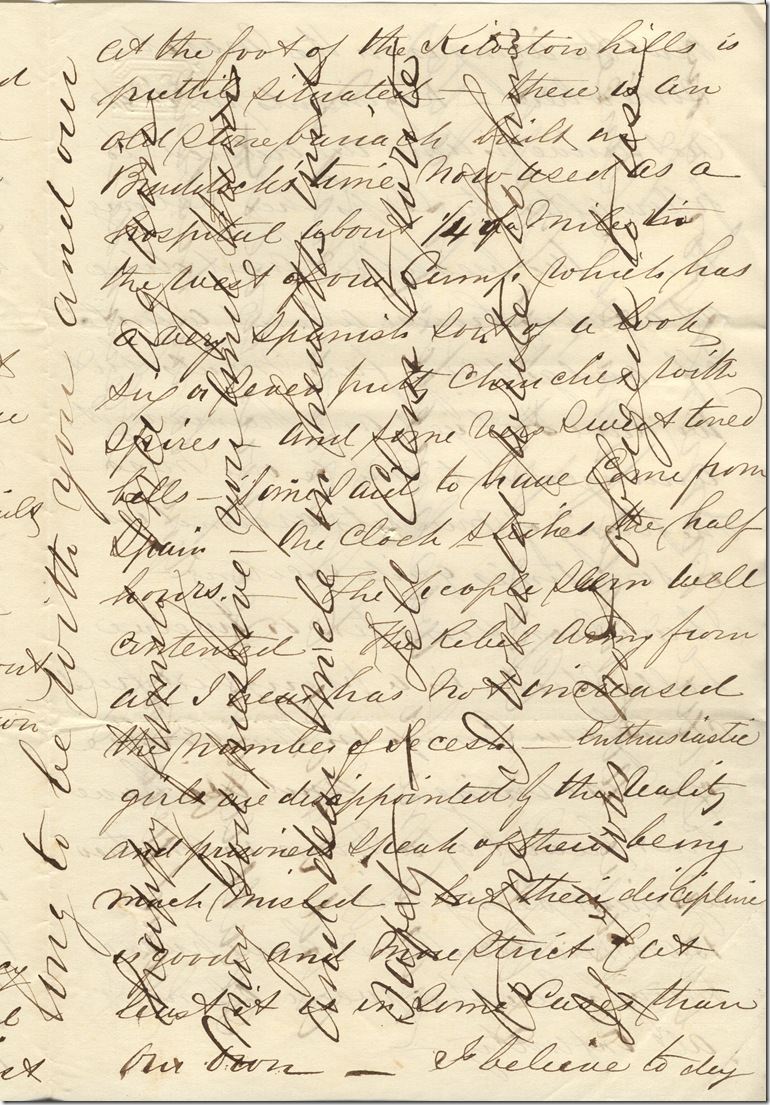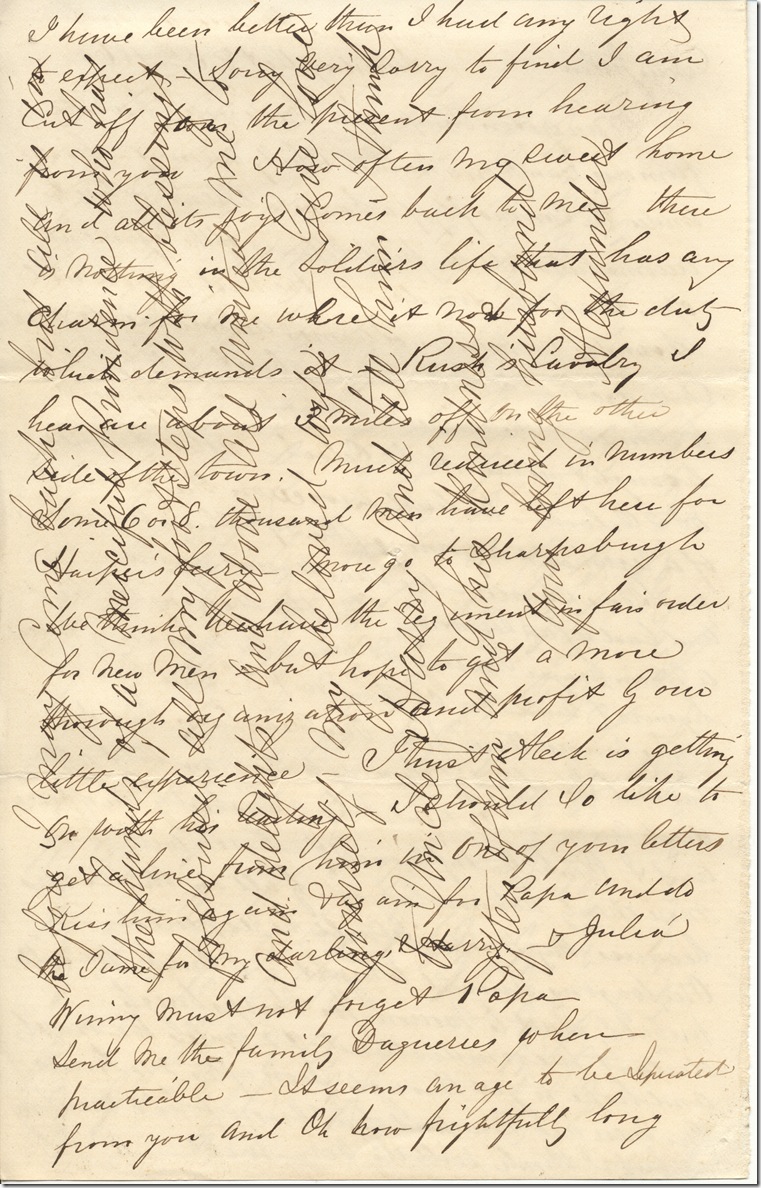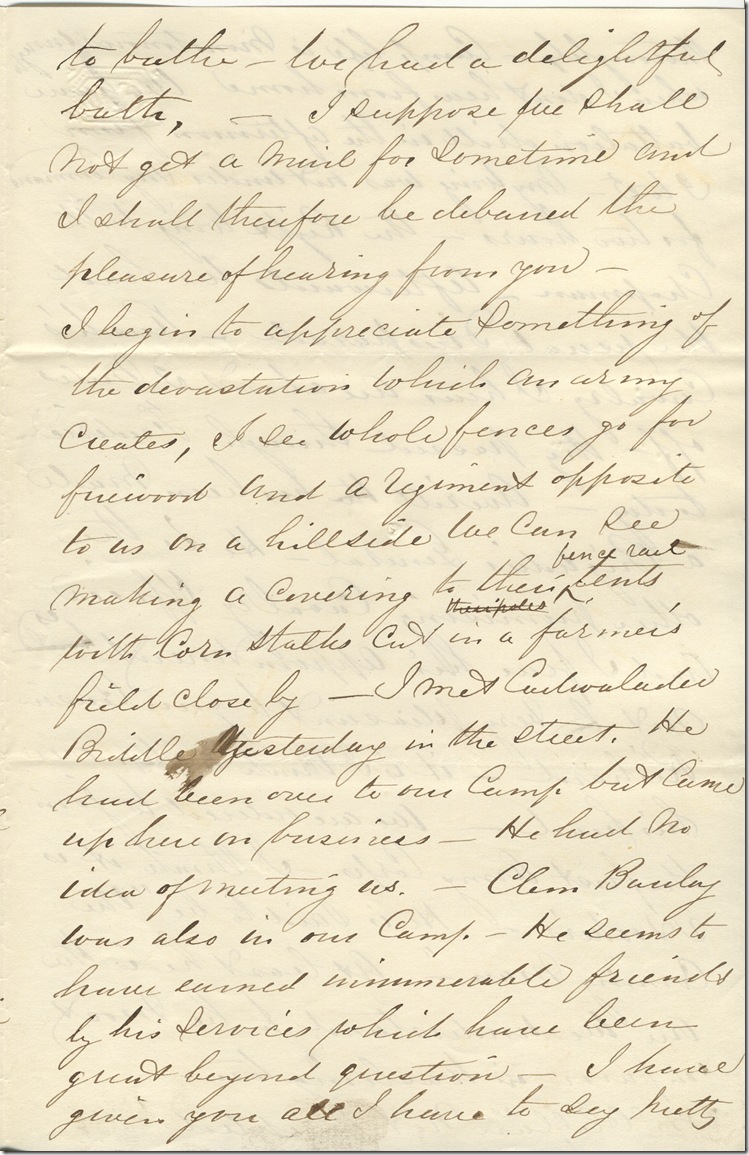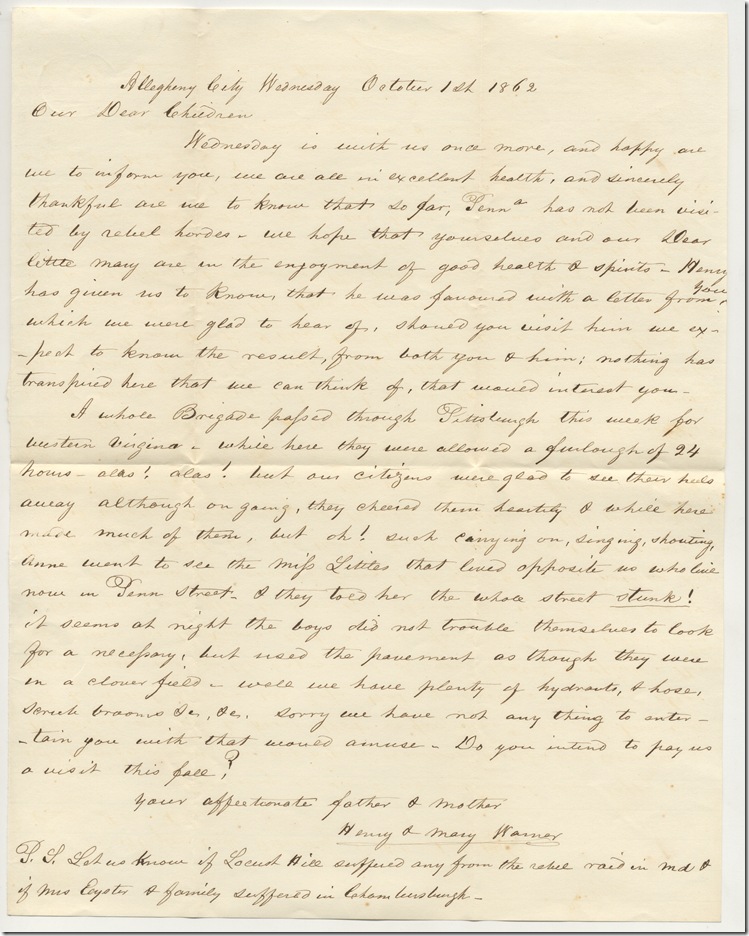Transcript:
Jackson Ten.
October 16th 1862
Dear Sister,
I received your letter by due course of mail and expected before this to have answered one of your questions in the shape of an official report. That is the part where you ask me the part I played at the battle of Iuka. When the reports of Subalterns come in I will make my report which no doubt will be published and will be a full answer to your question. I had no more to do with troops under Gen. Ord. than I had with those under Rosecrans but gave the order to both. The plan was admirably laid out for catching Price and his whole Army but owing to the nature of the ground, direction of the wind and Gen. Rosecrans having been so far behind where he was expected to be on the morning before the attack it failed. In the late battles we have gained such a moral advan-tage over them, however, with Van Dorn and Lovell added, that I do not know but it may have been for the better.
I have written to Julia to come down here and spend a short time. It will probably be but a short time that she can stay but so long as I remain here this will be a pleasant place for her. If the children have not already been sent to Covington I told her to bring them with her. The last letter I received she said that she was about sending them to Covington.
I believe you have now got it all quiet on the Ohio! I hope it will soon be so every place else. It does look to me that we now have such an advantage over the rebels that there should be but little more hard fighting.
Give my love to all at home. Write often and without expecting either very prompt or very long replies.
Ulys.
Citation:Ulysses S. Grant (1822-1885), autograph letter signed to Mary Grant Cramer. Jackson, Tenn., 16 October 1862. AMs 357/9
